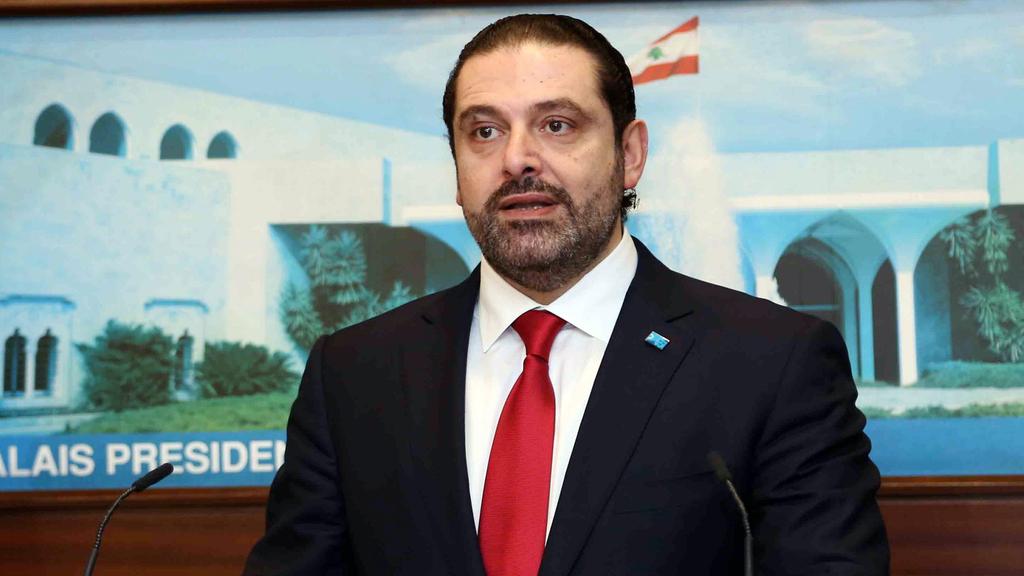Moderate Hariri faces economic problems and political obstacles
Michael Young/The National/October 03/17
Lebanon’s prime minister faces is under siege and facing a difficult dilemma, writes Michael Young
Since he took office as Lebanon’s prime minister, Saad Hariri has faced a number of dilemmas. His ability to continue to manage them will have a bearing on his political popularity in the run-up to Lebanon’s parliamentary elections, which are scheduled to be held, after multiple postponements, in spring next year.
Mr Hariri’s problems can be summarised fairly concisely. The recent bankruptcy of his Saudi Oger contracting company, one of Saudi Arabia’s largest, undermined his credibility, but also most importantly his power of patronage. That is why the prime minister’s first priority today is to remain in office, to reconstitute the patronage networks that would allow him to finance his political campaigns and retain a solid political base in his Sunni community.
However, this insistence on remaining in office is also a vulnerability. His main rivals, above all Hizbollah, understand that Mr Hariri will go to great lengths to avoid any confrontation that might bring his government down. That means the party is in a position to ratchet up its demands on him. Similarly, Mr Hariri, who had consolidated a political alliance with Michel Aoun, Lebanon’s president, is equally susceptible to Mr Aoun’s imposing conditions on him.
This situation is disheartening to the prime minister’s communal base, with many in the Sunni community wanting him to take a more confrontational approach with Hizbollah and Mr Aoun. Yet that might not only threaten the government, and therefore Mr Hariri’s political future; it could heighten sectarian tensions in Lebanon at a time when the country is dangerously close to economic collapse.
Making matters worse for Mr Hariri are two other developments. First, the trial of suspects in the assassination of the prime minister’s father, Rafik, in 2005 is going forward, with several Hizbollah members accused of participation in the crime. In this context, Mr Hariri’s collaborating with the party in government comes across to many of his partisans as unseemly.
At the same time, the prime minister’s avowed eagerness to be involved in Syria’s reconstruction process is no less controversial. Such a process would doubtlessly bolster the regime of Bashar Al Assad, so that Mr Hariri’s enthusiasm appears to signal his abandonment of those Syrians opposed to the regime, despite his claims to the contrary. That is why when Mr Hariri reacted negatively to a recent meeting between the Aounist foreign minister, Gebran Bassil, and his Syrian counterpart, the prime minister’s outrage did not seem very persuasive.
Mr Hariri is a victim of two simultaneous developments. First, a leadership change in Saudi Arabia, the prime minister’s regional patron. The new leadership was unwilling to throw money at the problems of a political client while Saudi Arabia faced economic challenges. This was a main reason for why the kingdom remained hardnosed about Saudi Oger, despite Mr Hariri’s loyalty.
Mr Hariri has also paid the price for his long absence from Lebanon between 2011 and 2016, which devastated his political networks. During a highly sensitive time for the country, with war raging in Syria, he was nowhere to be seen. This was compounded by the contraction of Mr Hariri’s powers of patronage, so that when he returned to Lebanon late last year, he had lost much sympathy.
For all of the criticism directed at Mr Hariri, he has shown respectable traits as well. Amid calls to raise the heat against Hizbollah, the prime minister has understood that such an approach would almost certainly fail to change the party’s behaviour, while heightening sectarian tensions. In other words, he has avoided playing the destructive populist, regardless of what it does to his appeal.
Mr Hariri has also tried to maintain cross-sectarian amity with the Maronite Christian community through his rapprochement with Mr Aoun and his son-in-law Mr Bassil. The prime minister has apparently tried to play a game of triangulation, positioning himself between Mr Aoun and Hizbollah. While this hasn’t worked and the latter two remain allies, Mr Hariri’s calculation perhaps was that the distance between them would grow as Mr Aoun defended the presidency against a Hizbollah invariably keen to undermine the institution for its own gains.
Perhaps the greatest threat to Mr Hariri is the economy. The prime minister has been unable to introduce much-needed reform in an economic system racked by corruption and heavily in debt. If the value of the pound collapses, it is Mr Hariri who will likely pay the heaviest price, given that he is regarded as a warden for sound economic policy. Saudi Oger’s fate will hardly be reassuring in that regard, but it is an open question whether Mr Hariri can use the growing fears of national bankruptcy to strengthen his political hand.
Some have accused Mr Hariri of wanting to postpone elections so as not to show how much support he has lost. But the decision will not be his. If one had to guess, Mr Hariri’s dilemmas mean he will shed many parliamentary seats in 2018. He remains a true moderate, but he must also worry about becoming a powerless one.


















